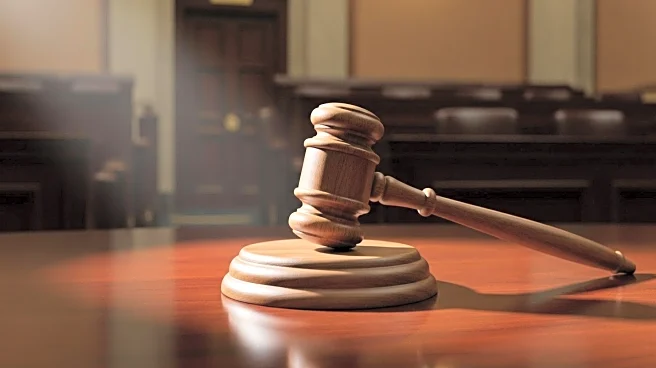What is the story about?
What's Happening?
Representative Thomas Massie is urging House Speaker Mike Johnson to expedite the swearing-in of Rep.-Elect Adelita Grijalva, a Democrat from Arizona. Grijalva won a special election to fill her late father's seat but has not been sworn in due to procedural delays. Massie emphasizes the importance of Grijalva's role in signing a discharge petition related to the Jeffrey Epstein case. The petition seeks to force a vote on releasing Justice Department files concerning Epstein. Massie argues that the delay in swearing in Grijalva is unwarranted and should be resolved promptly.
Why It's Important?
The delay in swearing in Grijalva highlights procedural challenges and partisan dynamics within Congress. Massie's involvement underscores the significance of the Epstein case and the demand for transparency in government investigations. The situation reflects broader issues of representation and the impact of procedural delays on legislative processes. Resolving this matter could influence the handling of similar cases in the future and affect public perception of congressional efficiency and fairness.
What's Next?
Massie's call for action may prompt discussions on procedural reforms to ensure timely swearing-in of elected officials. The resolution of this issue could impact the progress of the Epstein case and related legislative actions. Grijalva's swearing-in may lead to increased scrutiny of the discharge petition and its implications for government transparency. The situation may also influence political strategies and alliances within Congress, particularly regarding bipartisan cooperation.
Beyond the Headlines
The delay in swearing in Grijalva raises questions about the balance between procedural rules and democratic representation. It highlights the potential impact of partisan dynamics on legislative processes and the importance of timely action in government. This issue may also spark debates on the role of discharge petitions in promoting transparency and accountability. The outcome could lead to long-term changes in how procedural delays are addressed within Congress.















